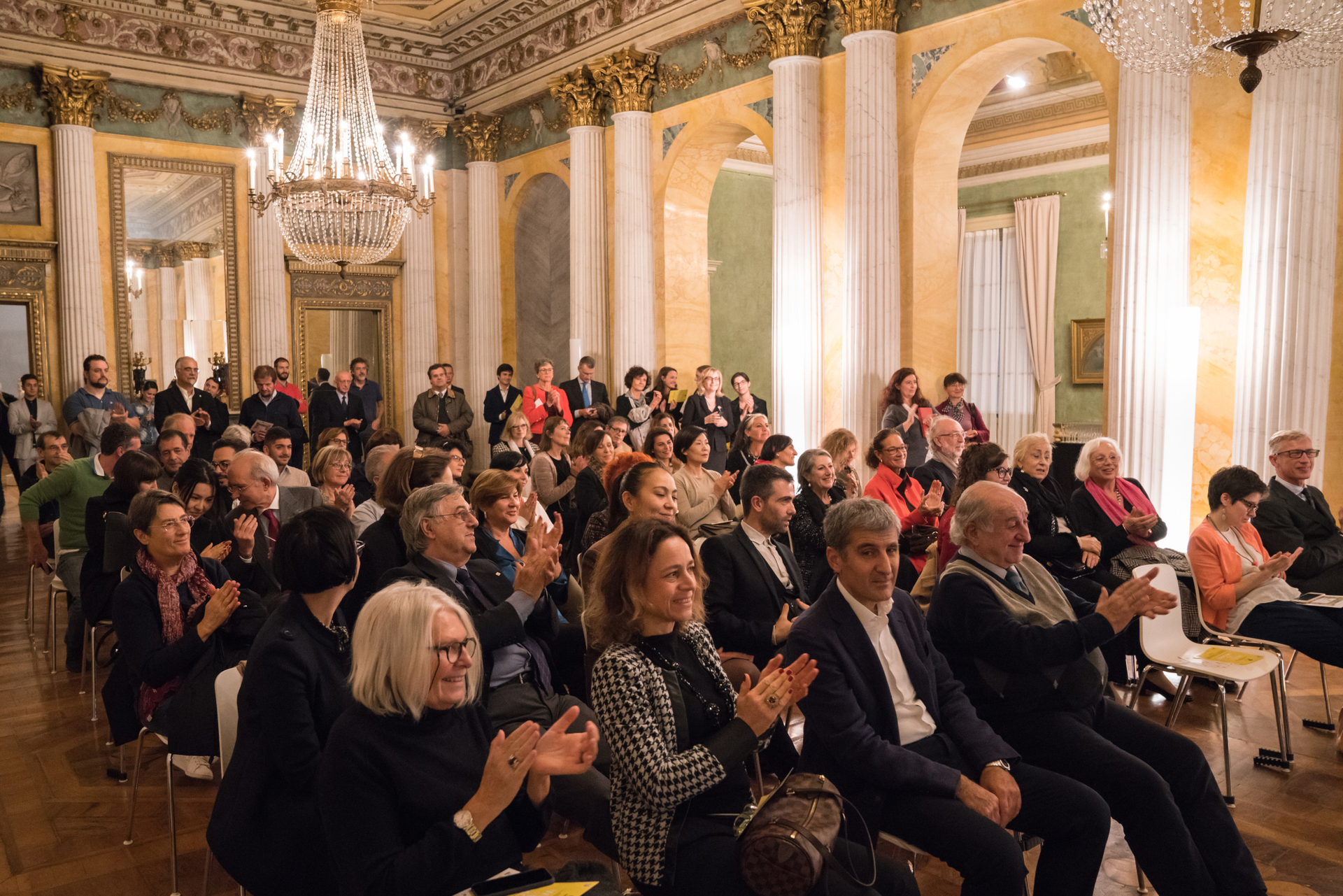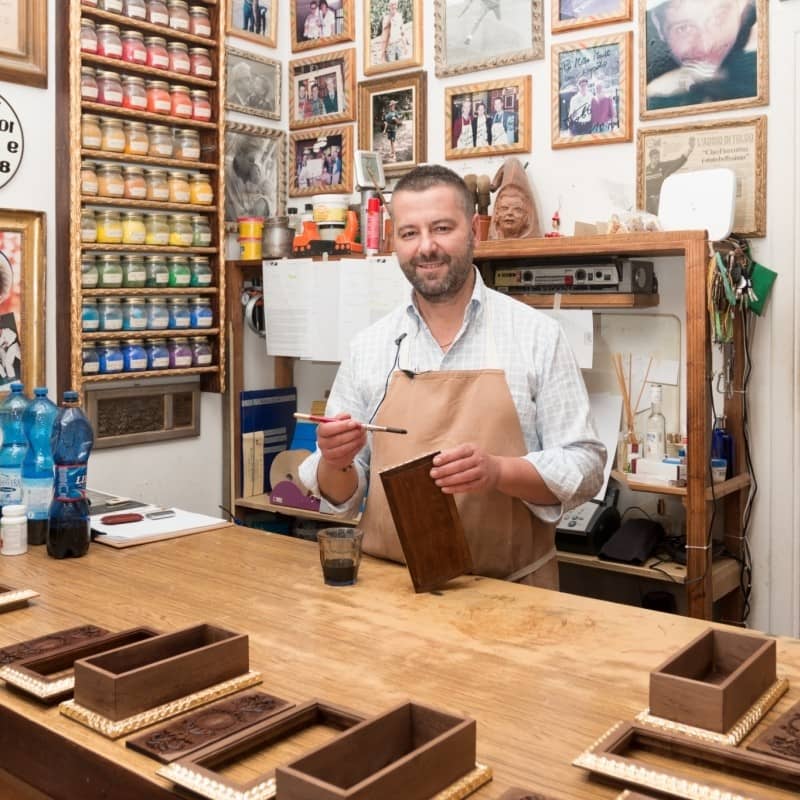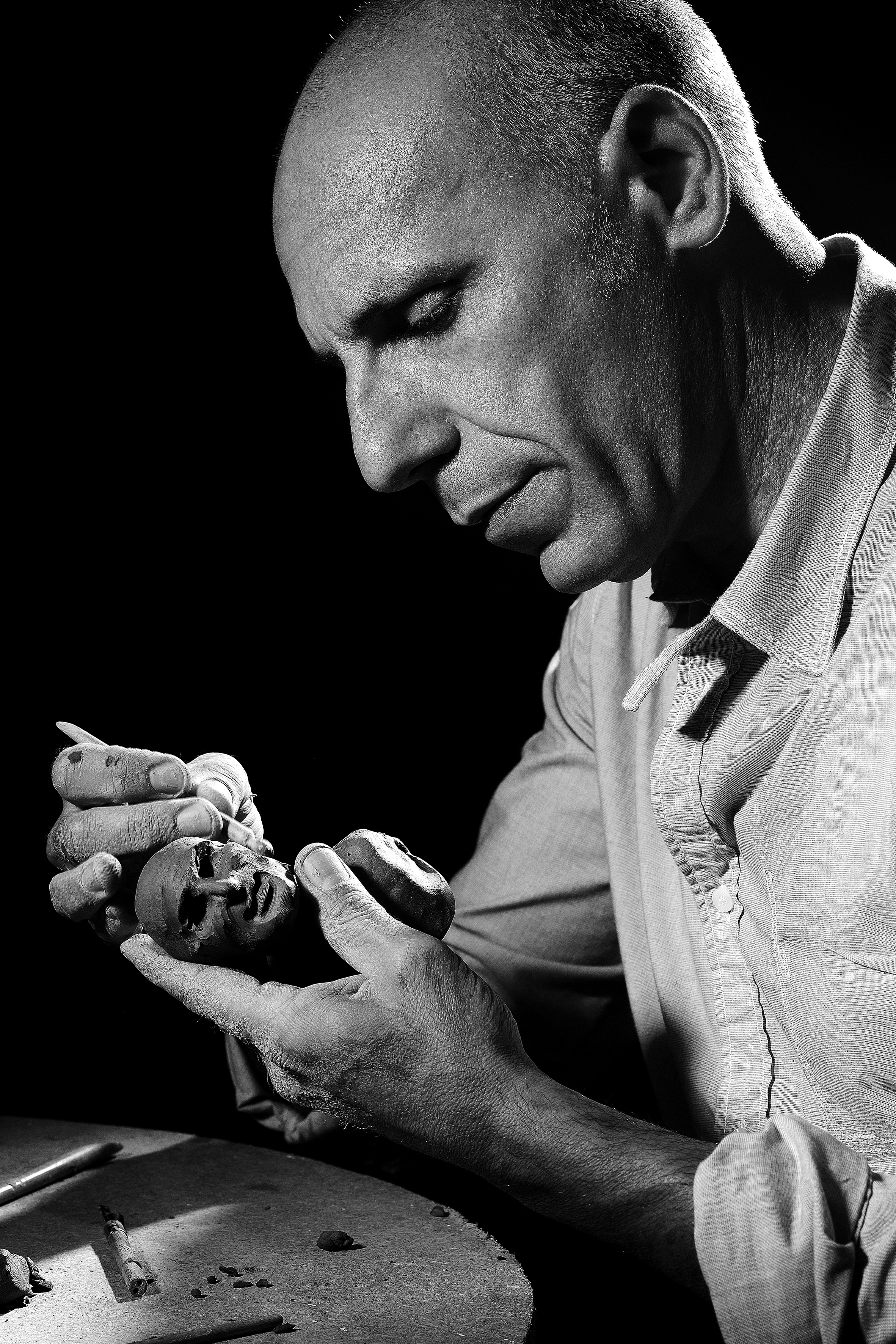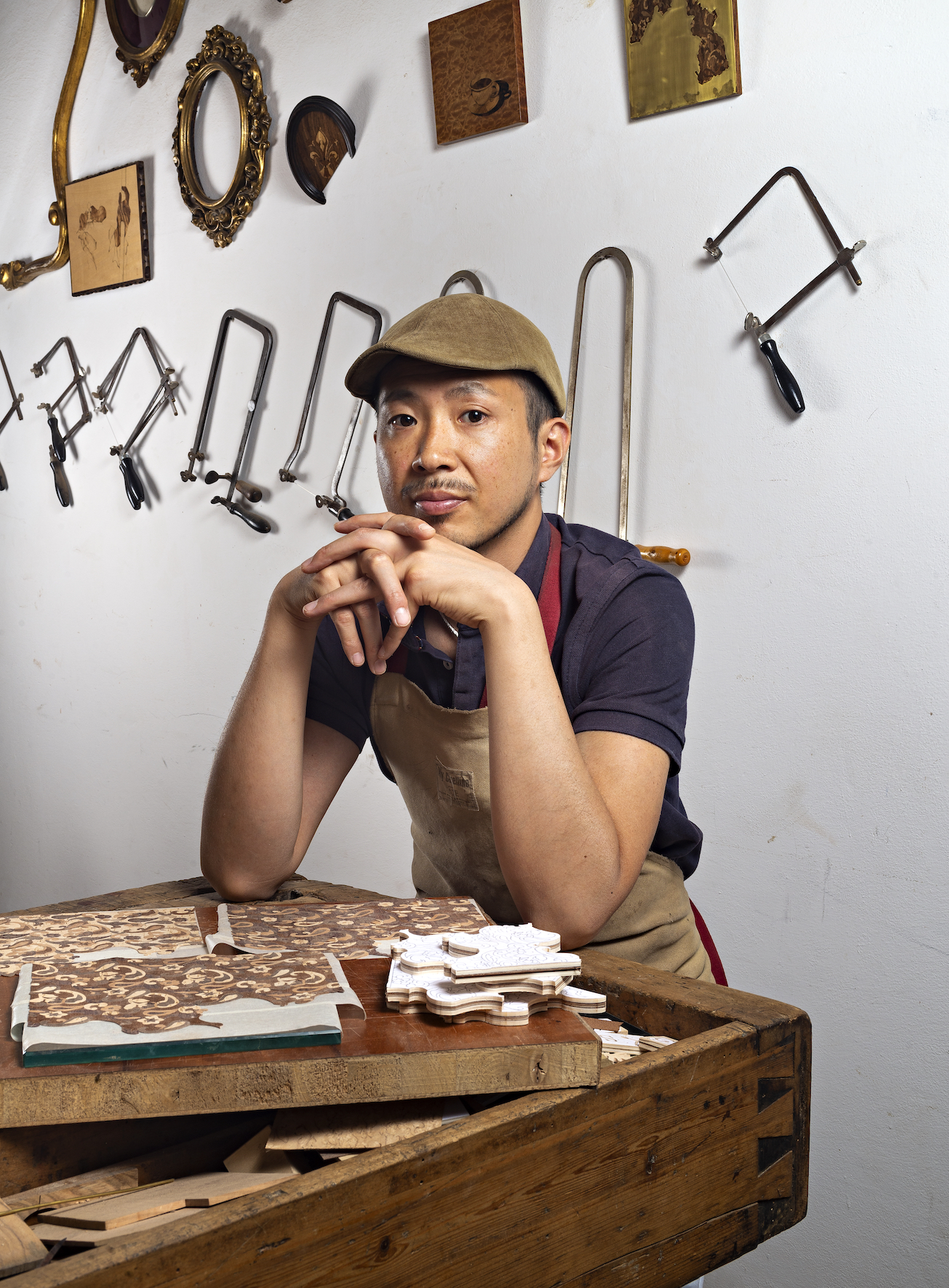Crisa
From Fabriano to SicilyThe Lo Gioco brothers, who graduated in Art History in Florence, started a special collaboration, Giuseppe with OMA and Francesco with Atelier degli ...
The Lo Gioco brothers, who graduated in Art History in Florence, started a special collaboration, Giuseppe with OMA and Francesco with Atelier degli Artigianelli. They both proved to be very successful. Hence the idea of embarking on an entrepreneurial path, and after obtaining a diploma in Fabriano (at the Carifacarte paper mill) and winning a competition for enterpreunership in Southern Italy, they decided to return to Leonforte in the province of Enna, their hometown, to start their own business: CRISA - Carta a mano. Thus, they created a splendid paper mill in Sicily, where they follow the Fabriano example and bring the sheet of paper to life by using cotton, water and glue.








Crisa
From Fabriano to SicilyThe Lo Gioco brothers, who graduated in Art History in Florence, started a special collaboration, Giuseppe with OMA and Francesco with Atelier degli ...
The Lo Gioco brothers, who graduated in Art History in Florence, started a special collaboration, Giuseppe with OMA and Francesco with Atelier degli Artigianelli. They both proved to be very successful. Hence the idea of embarking on an entrepreneurial path, and after obtaining a diploma in Fabriano (at the Carifacarte paper mill) and winning a competition for enterpreunership in Southern Italy, they decided to return to Leonforte in the province of Enna, their hometown, to start their own business: CRISA - Carta a mano. Thus, they created a splendid paper mill in Sicily, where they follow the Fabriano example and bring the sheet of paper to life by using cotton, water and glue.
Zouganista
A treasure chest of knowledge from JapanIn Japanese, Zouganista means “master of marquetry”. He is Takafumi Mochizuki, or simply Taka: creative, kind and imaginative soul. When one gets ...
In Japanese, Zouganista means “master of marquetry”. He is Takafumi Mochizuki, or simply Taka: creative, kind and imaginative soul. When one gets in his workshop, which he opened in 2014 in the area of Oltrarno in Florence, one is immediately astonished by the variety of wood available, the odd or ancient objects, which he regenerates and transforms into new, precious and inlaid artworks. The atelier is a treasure chest of knowledge from the East, such us the “Kintsugi”, a gilding technique applied to cracks, which he uses to decorate his pieces. Taka’s workshop is a perfect demonstration of how contemporary artistic craftsmanship can renovate the oldest techniques of the ancient tradition.
Ulderico Pinfildi
A real nativity scene artistIn Ulderico Pinfildi’s workshop in Via San Biagio dei Librai, one will find the real art of Neapolitan Christmas cribs. Ulderico grew up in a ...
In Ulderico Pinfildi’s workshop in Via San Biagio dei Librai, one will find the real art of Neapolitan Christmas cribs. Ulderico grew up in a family of clay artisans, and he started to create Christmas crib figures at a very young age. For a real artist a piece of clay, a support and skilled hands are enough to create a character, that is, as he states, “like a son that brings with himself all his birthright”. The classical 18th-century Neapolitan Christmas crib, set in the centre of Naples, must be appreciated in all its extremely realistic details. The clothes are made of valuable silk, in the style of the 18th century, and the characters have expressive faces and dramatic poses. The real masterpiece is the “Seven works of mercy”, made with an extreme realism that recalls Caravaggio.
Maselli
The art of keeping up with the timesSince 1955, in Florence, within walking distance from San Lorenzo Market, there is a historical shop and atelier: the frame workshop of master ...
Since 1955, in Florence, within walking distance from San Lorenzo Market, there is a historical shop and atelier: the frame workshop of master Gabriele Maselli. His passion for crafts stems from his father Paolo, who, by the end of the 1970s, encouraged him to study at the “Istituto per l’Arte e il Restauro - Palazzo Spinelli”, where Gabriele majored in gilding, after many years of work experience in the atelier of his family, in the same field. Nowadays his business is in the list of the historical and traditional Florentine trades, while he is committed to handing down this craft to his son Tommaso, who is still attending school but has already a big interest and passion for carving. Bottega Maselli represents the perfect example of a contemporary family workshop: impeccable quality, great customer care and constantly updated communication.
Fratelli Traversari
The rare trade of micro-mosaicThe Traversaris is one of the most important families of mosaic masters in Florence. Franco, the father, who has passed away, is still known to be ...
The Traversaris is one of the most important families of mosaic masters in Florence. Franco, the father, who has passed away, is still known to be one of the most important contemporary mosaic artists, thanks to his great attention to detail and his astonishing remakes of great artworks, such us Caravaggio’s “Bacco”. Daniele is an old friend of mine, who welcomed me in his workshop while I was starting the OMA project and I was studying the techniques of the Florentine Renaissance. Together with his kind and passionate sister Letizia, he dedicates himself to handing down the secrets of the trade and the Florentine micro-mosaic technique with Murano fiberglass. There are a few artisans that master this technique nowadays, together with “commesso fiorentino” technique with semi-precious stones. The subjects are mostly religious and sacred scenes, landscapes and still lifes, which stand out for their brightness and colour shades. The mastery and technical expertise of these artisans make their atelier one of the most important ones of Florence in this field.